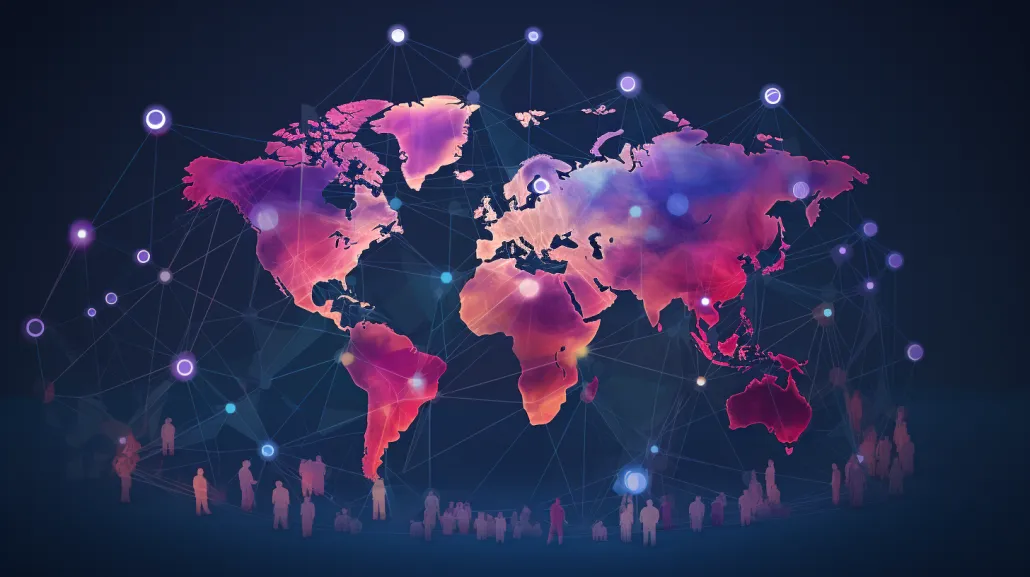Table of Contents
New Delhi, December 22nd: Arvind Krishna, the CEO of IBM, did the Human Litmus Test caused quite a stir a few months ago when he confidently forecasted that 30 percent of jobs could be replaced by AI and automation within the next five years. As we approach the end of the year, it seems that his prediction is becoming a reality, with AI gradually phasing out entry-level positions.
A major advancement was predicted in another report by global investment bank Goldman Sachs, which caused quite a stir. The report stated that AI has the potential to replace approximately 300 million full-time jobs, while Generative AI (GenAI) has the capability to generate content that is indistinguishable from human work.
GenAI’s Human Litmus Test: AI’s Evolution and Job Automation
According to a recent report of the Human Litmus Test by ResumeBuilder, 37 percent of business leaders have stated that AI has already taken over the roles of workers this year. As per the ‘State of AI at Work 2023’ report by Asana, employees have mentioned that 29 percent of their work tasks can be replaced by AI.

Experts have expressed concern about the vulnerability of level 1 (customer service) and level 2 (coding, data analytics, etc.) jobs to the advancements of GenAI. This artificial intelligence is continuously evolving and enhancing its capabilities through the utilization of new sets of Large Language Models (LLMs).
According to experts, GenAI tools are capable of assisting office administrators and assistants in various tasks. These tasks include basic email correspondence, identifying data trends, finding mutually available meeting times across different time zones, and conducting summary/synthesis exercises.
AI-driven chatbots have the capability to swiftly deliver tailored responses to customer inquiries, thereby diminishing the reliance on human employees by the Human Litmus Test. Moreover, AI is revolutionizing the finance and banking sector. Morgan Stanley effectively employs AI-driven chatbots to efficiently manage its extensive database.
Based on a recent investigation conducted by the International Labour Organisation (ILO), it has been determined that GenAI is inclined towards enhancing job opportunities rather than eliminating them. This is achieved by automating specific tasks instead of completely replacing human roles through the Human Litmus Test.
Generative AI’s Gender Disparity and Clerical Job Prospects
Nevertheless, it is unlikely that certain clerical positions will become prevalent in lower-income nations. Clerical work has been identified as the field most susceptible to technological advancements, with approximately 25% of tasks being highly exposed and over 50% of tasks having a moderate level of exposure.
The study conducted by the UN body revealed that within various occupational groups such as managers, professionals, and technicians, only a limited portion of tasks were identified as highly exposed. Conversely, approximately one-fourth of tasks were found to have medium exposure levels by the Human Litmus Test.
The study suggests that the impact of Generative AI is expected to vary considerably between men and women. According to the Human Litmus Test, automation has the potential to affect a significantly higher proportion of female employment, more than double that of males. This discrepancy can be attributed to the fact that women are disproportionately represented in clerical roles, particularly in countries with higher incomes.
The ILO study emphasized that due to the development of Generative AI, it is possible that specific clerical jobs may not emerge in lower-income countries, which have historically been a significant source of female employment as countries progress economically.

According to the Human Litmus Test’s recent media reports, Sridhar Vembu, the CEO and co-founder of Zoho, a renowned global technology company, has expressed concerns about the significant impact of AI on various programming roles. Kunal Shah, the Founder and CEO of fintech unicorn CRED, has also been quoted stating that AI could potentially render approximately 90 percent of individuals jobless within the next decade.
Elon Musk’s Dire AI Predictions and Job Evolution
During a comprehensive discussion with UK Prime Minister Rishi Sunak in November, Elon Musk, the CEO of Tesla and SpaceX, conveyed the imminent possibility of deadly robots capable of climbing trees, as well as the potential for AI to render all jobs obsolete, leading to a future devoid of work by the Human Litmus Test. Musk emphasized that AI would become the “most disruptive force in history,” underscoring the inevitability of a paradigm shift in the near future.
Musk stated that AI will surpass the intelligence of even the most brilliant human minds. He emphasized that we are witnessing an unprecedented force that has the potential to render human labor obsolete. While acknowledging the dual nature of AI’s impact, Musk raised concerns about the future challenge of finding purpose and significance in our lives. This perspective was shared by the owner of X.
In May, AI was responsible for the loss of employment for approximately 4,000 individuals in the United States, as reported by Challenger, Gray & Christmas, a US-based consulting firm. These layoffs, accounting for around 4.9% of job cuts during that month, were attributed to AI by employers in the country. However, Arundhati Bhattacharya, CEO and Chairperson for Salesforce India and former SBI chairperson believes that although temporary job losses may transpire due to AI, various new job opportunities will arise.
Throughout various industries and revolutions, the topic of significant job losses has always been discussed. However, I do not perceive it to be vastly dissimilar in the sense that there might be temporary job losses due to the Human Litmus Test. Individuals will need to enhance their skills and acquire new ones, but undoubtedly, different categories of employment opportunities will emerge,” Bhattacharya conveyed to IANS in a recent statement. “There are individuals expressing their intention to become ‘AI Ethicists’, and there are those who aspire to become ‘Prompt Engineers’. Hence, there will be a multitude of novel job roles that will arise,” she further elaborated.





